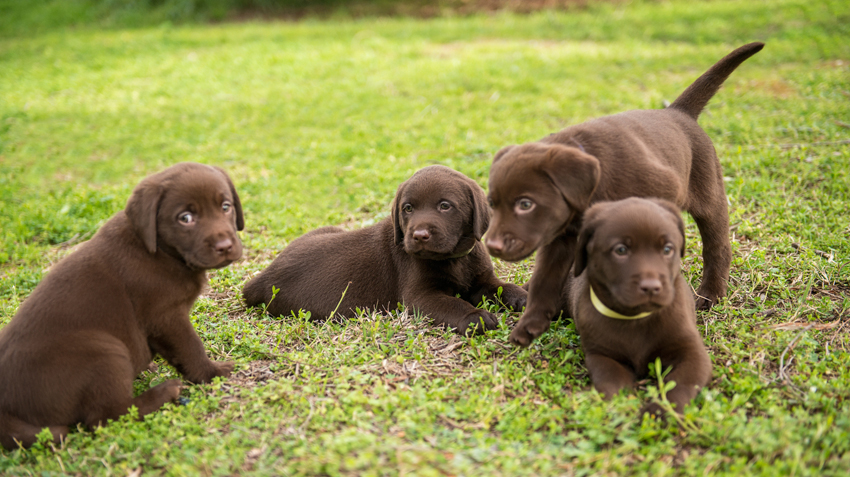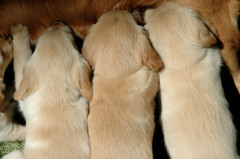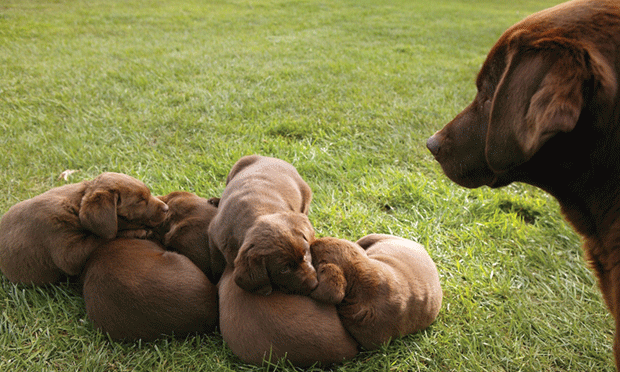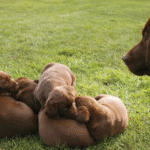When to Separate Puppies from the Litter

When puppies are born, owners are often eager to welcome these new additions to their families. It might be tempting to assimilate them into their new human family immediately, or to pass them on to new loving homes.

However, the most important thing in this crucial time of puppies’ lives is to be with their mother and new brothers and sisters. If the proper timeline isn’t followed, the puppies could develop problems later in life, and the mother can experience medical problems.
Young Pups
During the first few weeks of a puppy’s life, it is extremely dependent on its mother, much like a human child. The puppy gets its food and love from mom. In addition, puppies learn important social skills from the mother and siblings in these early weeks. For instance, puppies learn by playing with their littermates that biting is bad, as well as when “play” might be too rough.
The recommended age for separating puppies from their litter is 6 to 8 weeks, according to Dr. David W. Reinhard, a consulting veterinarian for Nationwide pet insurance. By this time, puppies should have been socialized to their human counterparts, a process that takes place between 3 and 12 weeks of age, Reinhard says.
It is crucial that during this period, puppies are introduced to humans and increase their contact with people. “This is the time when they learn that humans are dominant and develop personality traits that last a lifetime,” Reinhard advises.
To help the puppies get acquainted with their human owners, give daily individual attention to each puppy to get him or her used to positive interaction with people.
All About Mom

This 6 to 8 week timetable fits into the period when supplemental feeding should be instituted and final weaning takes place, according to Reinhard.
It is important that weaning from the mother be a gradual practice — for both the mother’s health and the puppies’. This can be achieved by reducing the frequency of nursing and supplementing the puppies’ diets. This approach allows for orderly “drying up” of the mammary glands, Reinhard says.
“Abrupt weaning, especially when large litters are involved, results in congestion of the mammary glands, which can be painful and may lead to mastitis, the inflammation of mammary glands,” he says.
Potential Consequences
If puppies are separated from a litter too soon, some health and behavioral consequences may occur. Below are just a few of the problems that could take place if your pup is split from the group too soon:

- Poor physical condition
- Decreased weight gain
- Increased disease susceptibility
- Decreased learning ability
- Separation anxiety
For more information on litter separation, discuss with your veterinarian so that your puppy’s particular needs with be addressed.
Bringing Puppies Heim
After your pups have reached the appropriate age, you will become their “parent.” If the canine mother is no longer in the home, it is natural for a puppy to cry or whine at first as he adjusts.
When the puppy is first separated from his mom, he will need a lot of attention and contact from you. Let your puppy sleep in a crate next to your bed until he adjusts to his new surroundings. This will reassure the puppy that he has not been abandoned, and it will help the bond between you grow stronger.






